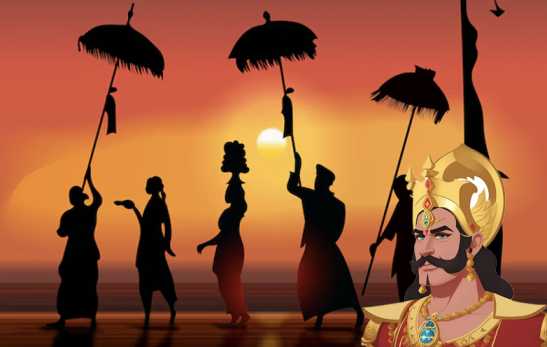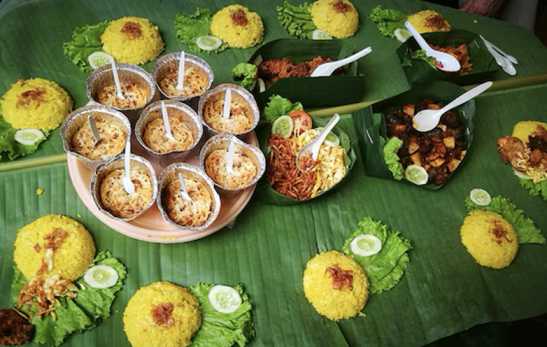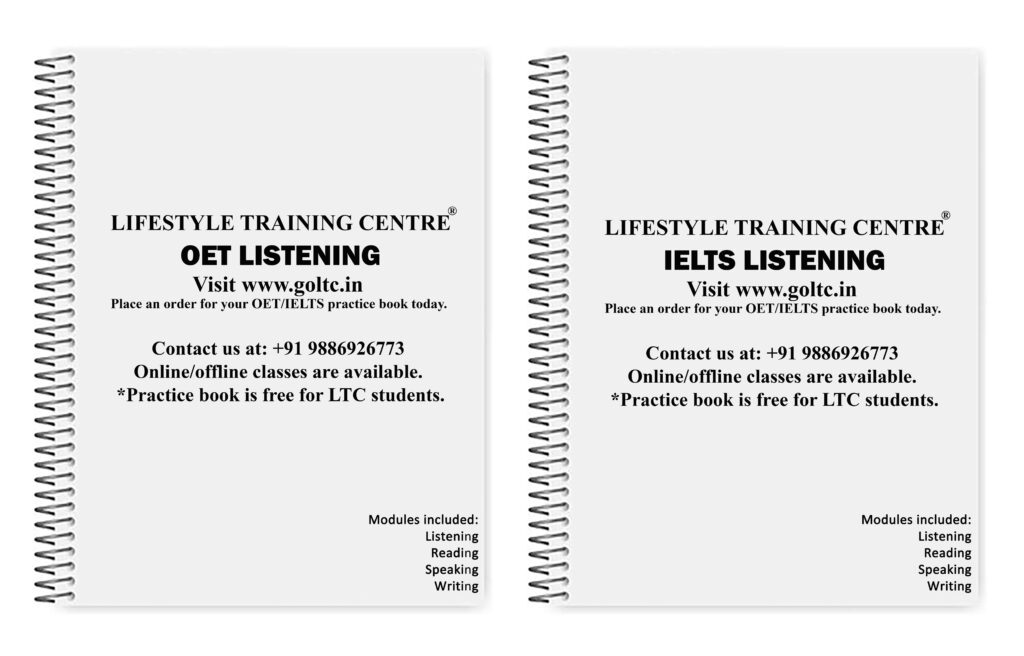1. Do you enjoy watching or playing sports? Why or why not?
I’m an avid sports enthusiast, and I thoroughly enjoy both watching and playing sports. Watching high-octane events like football matches or tennis tournaments is not only entertaining but allows me to appreciate the skills and dedication of athletes. It’s thrilling to witness players push their limits and showcase their talents. On the other hand, playing sports keeps me physically active, promotes teamwork, and offers an excellent way to socialise and blow off steam. After a session of playing my favourite sports, I always feel rejuvenated and mentally sharp.
2. What is the most popular sport in your country, and why do you think it’s so popular?
In my country, cricket is more than just a sport; it is almost a religion. The game has a deep-rooted history that connects people across generations, making it an integral part of our culture. Its popularity is attributed to the star players, who are treated as icons, and the fervent support it receives during international tournaments. The thrill of the game, combined with national pride during crucial matches, often leads to entire communities rallying together to celebrate. Cricket bridges divides, creating a sense of unity and excitement, especially during major tournaments like the World Cup.
3. Do you think it’s important for children to participate in sports? Why?
Absolutely, children should actively engage in sports as they provide a multitude of benefits. Participating from an early age promotes physical fitness and helps build lifelong habits. Sports also encourage teamwork, foster discipline, and teach the importance of healthy competition. Moreover, they instill valuable life skills, such as perseverance, resilience, and leadership, which are essential in shaping well-rounded individuals. The confidence gained through sports helps children navigate challenges in both academic and personal realms.
4. What role do sports play in your life, and how do they benefit you?
Sports play an essential role in my life by maintaining my physical health and mental well-being. Regular participation in activities like swimming and cycling helps me stay fit, while also providing a sense of escape from the stresses of daily life. Physical activity not only strengthens the body but also releases endorphins, which improve mood and mental clarity. Engaging in sports also gives me the opportunity to socialise, build friendships, and enhance teamwork skills. It provides a holistic approach to well-being, helping me strike a balance between personal and professional life.
5. What are some traditional sports or games in your country, and are they still popular?
Traditional sports like kabaddi and kho-kho have deep cultural roots in my country. While they may not enjoy the mainstream popularity of cricket, they remain highly valued in local communities, particularly during cultural festivals. Kabaddi, with its agility and strategy, is a thrilling game that continues to inspire fierce competition. Similarly, kho-kho is cherished for its emphasis on team coordination and quick reflexes. Although these sports are not played as widely today, they continue to keep our heritage alive and provide a unique glimpse into our cultural traditions.
6. Do you think sports should be compulsory in schools? Why or why not?
I firmly believe that sports should be compulsory in schools, as they serve to develop both the body and the mind. Regular participation encourages physical fitness, which in turn helps students focus better in class. Beyond the physical benefits, sports teach students essential skills such as teamwork, time management, and discipline, which are valuable in all walks of life. Schools that incorporate sports into their curriculum provide a well-rounded education that nurtures students in all aspects of life. Physical education also serves as a breath of fresh air, offering students a much-needed break from academic pressures.
7. How do sports contribute to a sense of community and national identity?
Sports have the remarkable ability to foster unity and strengthen a sense of community. During international tournaments, people of all backgrounds come together to support their national team, which creates a feeling of collective pride. Victory on the global stage brings a wave of joy and strengthens national identity, as citizens rally behind their athletes. Sports serve as a common language, transcending cultural and social differences, and fostering a sense of belonging and pride. It’s a unifying force that reminds us of our shared values and aspirations.
8. Have you ever attended a major sports event or tournament? Describe your experience.
Yes, I had the incredible opportunity to attend a major football tournament in my city. The atmosphere was electric, with fans from all over the world coming together to celebrate the sport. The roar of the crowd, the palpable excitement, and the intense competitiveness of the matches left me in awe. The experience was truly unforgettable, as the energy in the stadium was contagious and every goal scored brought cheers and high-fives from the fans around me. It was a memorable event that made me feel deeply connected to the global community of football lovers.
9. What do you think are the physical and mental benefits of regularly participating in sports?
Regular participation in sports offers numerous physical and mental benefits. Physically, it enhances cardiovascular health, strengthens muscles, and improves flexibility. Mentally, sports are a great way to reduce stress, boost self-esteem, and increase mental resilience. The routines associated with sports help improve focus and discipline. Additionally, engaging in physical activity increases the production of endorphins, which promote happiness and a sense of well-being. It’s a holistic approach that nurtures both the mind and body.
10. How can sports contribute to international diplomacy and understanding?
Sports have the unique power to transcend national borders and promote international diplomacy. Events like the Olympics and the FIFA World Cup provide a platform for nations to engage in peaceful competition. By bringing athletes and spectators from different countries together, sports foster cultural understanding and mutual respect. The spirit of sportsmanship creates a level playing field where differences are set aside in favour of friendly competition. It promotes dialogue, builds bridges, and cultivates global solidarity and cooperation.
TASK 2
Topic: An Interesting Animal
– Question 12: Describe an interesting animal you’ve encountered.
– You should say:
– What type of animal was it?
– Where did you encounter it?
– What made it interesting?
– How did you feel about the encounter?
TASK 3 FOLLOW-UP QUESTIONS AND ANSWERS
- What animal would you consider to be the most fascinating, and why?
I think the octopus is one of the most fascinating animals I’ve ever learned about. Not only is it incredibly intelligent, but it can also change colour and texture to blend seamlessly into its surroundings. What really blows my mind is its ability to escape from seemingly impossible situations, proving just how resourceful and adaptable it is. It truly pushes the boundaries of what we think animals are capable of.
- Do you think humans have a responsibility to protect endangered animals? Why or why not?
Absolutely, humans have an imperative duty to protect endangered animals. By safeguarding these species, we are preserving the delicate balance of nature. In the grand scheme of things, every animal plays a crucial role in the ecosystem, and losing one could set off a domino effect of unforeseen consequences. We should all take it upon ourselves to ensure future generations have the opportunity to witness these magnificent creatures.
- How do you feel about zoos, and do you think they are ethical?
I have mixed feelings about zoos. On one hand, they provide an opportunity for people to learn about animals they might never encounter in the wild, fostering appreciation and conservation efforts. On the other hand, some zoos fall short of providing the natural habitats animals need to thrive, leading to ethical dilemmas. In an ideal world, rehabilitation centres and sanctuaries would be a better alternative, where animals are cared for without the constraints of captivity.
- Do you believe animals have emotions similar to humans? Why?
Yes, I believe animals have emotions, albeit different from humans in expression. For instance, dogs display genuine affection and loyalty to their owners, while elephants are known for their strong family bonds and grieving behaviours. I think animals can experience empathy, fear, and even joy, though their emotions may not be as complex as ours. The idea that we are not so different after all is quite eye-opening.
- What do you think is the most dangerous animal in the world?
The mosquito is undoubtedly the most dangerous animal, even though it’s tiny in size. It’s responsible for spreading diseases like malaria and dengue, affecting millions of people worldwide. In the grand scheme of things, the mosquito might seem unassuming, but its impact is incredible. It just goes to show that danger doesn’t always come in large or intimidating forms.
- Have you ever had a close encounter with a wild animal? How did you react?
Yes, I once had an encounter with a wild deer during a hike in the woods. At first, I was frozen in awe, not knowing whether to move or stay still. The moment felt like time had slowed down, and I was mesmerised by the animal’s beauty and grace. It was a humbling experience, reminding me of the fragility and wonder of nature.
- Do you think people should keep wild animals as pets? Why or why not?
I firmly believe wild animals should not be kept as pets. Their wild instincts and complex needs are often incompatible with domestic life, which can lead to stress and suffering for both the animal and its owner. Keeping such animals is irresponsible and dangerous, as their natural behaviour is often misunderstood. It’s important to respect their place in the wild, where they truly belong.
- How can humans learn from animals?
Humans can learn a great deal from animals, particularly about adaptability and resilience. Take the migratory birds, for example: they have an innate ability to navigate long distances without the aid of technology. Animals like these show us the importance of navigating challenges with a sense of purpose and patience. There’s also a lot to learn about community-building from animals like wolves or elephants, who live and work together to ensure survival.
- Do you think humans have become too disconnected from nature?
Unfortunately, I do think we’ve become increasingly disconnected from nature. With the rise of technology and urbanisation, many people no longer interact with the natural world as much as they once did. The increasing distance between humans and animals has led to misunderstanding and desensitisation. We need to reconnect with nature to preserve the beauty of our environment and live more sustainably.
- What animal do you think best represents your personality?
If I had to choose an animal that represents my personality, I’d say the owl. Owls are often associated with wisdom, calm observation, and quiet strength. I like to think of myself as someone who takes a step back, evaluates situations carefully, and then acts decisively. Owls also symbolise adaptability, which is a trait I value in myself. I guess you could say I see myself as a creature who blends grace and wisdom.
Vocabulary List (TASK 3)
- Avid – Having a strong enthusiasm or interest in something.
- Intelligent – Having or showing high mental capacity; clever.
- Resourceful – Able to find quick and clever ways to overcome difficulties.
- Adaptable – Able to adjust to new conditions or environments.
- Impressive – Having a strong effect or influence on the mind or emotions.
- Ethical – Relating to moral principles or the branch of knowledge dealing with these.
- Holistic – Considering the whole, rather than just parts.
- Rehabilitate – To restore to health or normal life through training and therapy.
- Empathy – The ability to understand and share the feelings of another.
- Unassuming – Not pretentious or arrogant; modest.
- Fragility – The quality of being easily broken or damaged.
- Patience – The ability to wait calmly without becoming angry or upset.
- Survival – The state or fact of continuing to live or exist, often despite difficulty.
- Irresponsible – Not showing a proper sense of responsibility.
- Desensitisation – The process of making someone less sensitive to something.
- Purpose – The reason for which something is done or created.
- Resilience – The capacity to recover quickly from difficulties; toughness.
- Misunderstood – Not understood correctly.
- Navigating – The act of directing or guiding through a particular course or direction.
- Sustainably – In a way that does not deplete resources or cause long-term damage.
Idioms List
- Pushing the boundaries – Going beyond the usual limits or expectations.
- In the grand scheme of things – Considering the whole situation or context, often in a broader sense.
- Fall short – To fail to reach a desired or expected level.
- Frozen in awe – Being so amazed or impressed that one cannot move.
- In the blink of an eye – Very quickly or instantly.
- Blows my mind – Amazes or astonishes someone greatly.
- A humbling experience – An experience that makes one feel modest or humble.
- Pushes the limits – Tests the boundaries of what is possible.
- Blends grace and wisdom – Combines elegance with knowledge or insight.
- Incredible impact – An extremely strong and significant effect.
Phrases List
- Incredibly intelligent – Extremely smart or quick-witted.
- Natural habitats – The original environment in which a species lives.
- In an ideal world – Referring to a perfect or utopian situation.
- Push it to the limits – To test the full extent of something.
- A sense of community – A feeling of belonging and connection with others.
- A sense of pride – A feeling of deep satisfaction and respect.
- Stronger family bonds – Deep, supportive connections between family members.
- Transcend borders – Go beyond physical, cultural, or conceptual boundaries.
- A platform for peaceful competition – A stage or opportunity for competing in a fair and harmonious way.
- Building lasting friendships – Creating friendships that endure over time.
IELTS Speaking Task Topics
Click on any topic to explore more!
Names

Learn about the importance of names and their cultural significance.
Study / Job

Discuss various aspects of studying and working in different fields.
Hometown

Explore the charm of your hometown and its unique features.
Accomodation

Understand various types of accommodation and living situations.
Weather

Learn about how weather influences daily life and activities.
Time

Discuss the concept of time, its importance, and time management.
Television

Talk about the role of television in modern entertainment.
Museum

Discuss the cultural importance of museums and historical exhibits.
Holidays

Explore the significance of holidays and different celebrations.
Films

Learn about the impact of films on culture and society.
Leisure Time

Discuss how leisure activities impact personal well-being.
Sport

Talk about the role of sports in health, entertainment, and culture.
Vegetables and Fruits

Discuss the health benefits and importance of fresh produce.
Maths

Explore the role of mathematics in various aspects of life.
Sky

Discuss the beauty and scientific significance of the sky.
Clothes&Fashion

Explore how clothing reflects culture and personal expression.
Weekend

Discuss the importance of weekends and ways people relax.
Reading

Learn about the importance of reading and various reading habits.
Sleep

Explore how sleep impacts physical and mental well-being.
Trees&Plants

Discuss the environmental and health benefits of plants.
Newspaper

Discuss the evolving role of newspapers in the digital age.
Texting

Explore the role of text messaging in modern communication.
Memorising

Learn techniques for improving memory and memorization.
Travelling

Discuss the importance and impact of traveling in modern society.
Communication

Explore the modes and significance of communicating well
Letter&Email

Explore the differences and significance of letters vs. emails.
Swimming

Discuss the benefits of swimming for health and fitness.
Snacks

Explore the role of snacks in daily nutrition and lifestyle.
Photography

Discuss photography’s cultural and artistic significance.
Help

Talk about the importance of offering and receiving help.
History

Discuss historical events and their impact on modern society.
Handwriting

Explore the significance of handwriting in education and culture.
Music

Learn about the influence of music on emotions and society.
Colours

Discuss how colours affect perception and mood.
Teachers

Explore the role of teachers in shaping students’ futures.
Being Alone

Talk about the experience and benefits of spending time alone.
Teamwork

Learn the importance of teamwork in professional and social contexts.
Countryside & City

Explore the charm and benefits of living in the countryside.
Social Media

Discuss the impact of social media on society and relationships.
Friends

Explore the importance of friendships in life.
Artificial Intelligence (AI)

Talk about the future of AI and its role in society.
Climate Change

Discuss the causes and consequences of climate change.
Transportation

Explore different modes of transportation in your area.
Sustainable Transportation

Explore ways to make transportation more environmentally friendly.
Space Exploration

Learn about the latest advancements in space exploration.
Shopping

Explore how shopping influences culture and the economy.
Modern Technology

Discuss how modern technology is reshaping society.
Technology

Learn about the role of technology in everyday life.
Sustainable Living

Explore ways to live sustainably for the future of the planet.
Globalisation

Learn about the effects of globalisation on society and economies.
Global Warming

Discuss the causes, effects, and solutions to global warming.
Gender Equality

Explore the importance of gender equality in modern society.
Health and Fitness

Discuss the importance of maintaining a healthy lifestyle.
Renewable Energy

Learn about renewable energy sources and their impact on the environment.
Cultural Traditions in Kerala

Explore the unique cultural traditions of Kerala, your hometown.
Cultural Traditions in Your Country

Learn about the cultural traditions in your country.
Education System

Discuss the education system in your country and its effectiveness.
Traditional Cuisine

Explore the significance of traditional cuisines in your culture.
Do you need printed IELTS/ OET practice material? Place your order today. Available now for just Rs: 1,100 (including shipping all across India) Contact us at our WhatsApp number: +91 9886926773 to place your order. (Free for LTC students)

We hope this information has been valuable to you. If so, please consider a monetary donation to Lifestyle Training Centre via UPI. Your support is greatly appreciated.

Would you like to undergo training for OET, PTE, IELTS, Duolingo, Phonetics, or Spoken English with us? Kindly contact us now!
📱 Call/WhatsApp/Text: +91 9886926773
📧 Email: mail@goltc.in
Visit us in person by following the directions on Google Maps. We look forward to welcoming you to the Lifestyle Training Centre.
Follow Lifestyle Training Centre on social media:
Thank you very much!
